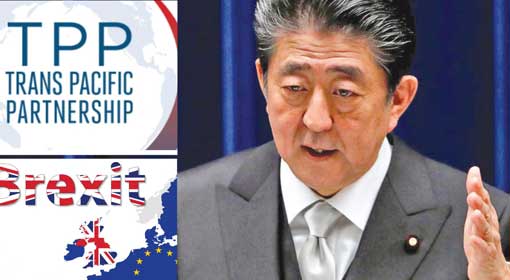Tokyo: Japanese Prime Minister Shinzo Abe resigned on Friday, citing health reasons. Abe said at this time that he was resigning, as he did not want his illness to affect the important policies of the country. Abe is known as one of the longest-serving Prime Ministers of Japan. During his tenure as Prime Minister, Abe made the country stronger, with some tough decisions. Therefore, his shocking resignation has created a sensation and leaders from around the world are reacting to the development. Indian Prime Minister Narendra Modi also expressed anguish over the resignation of Prime Minister Abe. It is being said that Prime Minister Abe’s resignation could have an impact on the developments in the Indo-Pacific region.
 On Friday, reports of Prime Minister Abe’s resignation were being received since morning. In the afternoon, Abe announced his resignation from the Prime Minister’s post, in a press conference called around afternoon. Abe said he was resigning on health grounds. In the last month, Abe had visited the hospital twice. Abe already had ulcerative colitis. Abe said ‘If I cannot take the best decisions for the people of Japan, I have no right to continue as the Prime Minister.’ Abe clarified that this is the best time for the resignation.
On Friday, reports of Prime Minister Abe’s resignation were being received since morning. In the afternoon, Abe announced his resignation from the Prime Minister’s post, in a press conference called around afternoon. Abe said he was resigning on health grounds. In the last month, Abe had visited the hospital twice. Abe already had ulcerative colitis. Abe said ‘If I cannot take the best decisions for the people of Japan, I have no right to continue as the Prime Minister.’ Abe clarified that this is the best time for the resignation.
Abe became the Prime Minister in 2012. During his 8-year tenure, he took some bold decisions to strengthen the Japanese economy. Abe confronted China over the South China Sea issue. It was Abe who changed the equations in the Indo-Pacific sector. The India-Japan cooperation strengthened, after that. Therefore, Prime Minister Modi’s reaction to Abe’s resignation becomes significant. Prime Minister Modi gave his good wishes saying ‘The India-Japan relations had become deep and strong in the last few years. Abe should get well soon.’ Reactions have been received from South Korea, Australia, the United Kingdom and Russia and their leaders have said that the foreign relations have been strengthened during Abe’s tenure.
Abe had resigned from the Prime Minister’s post, even in 2007, on health grounds. Thereafter, Abe, who was once against elected as the Prime Minister, strengthened Japan further on the political, economic and military fronts. The aggressive changes made by Abe in the Japanese defence policy became a cause for increasing concerns for China. Since the second world war, the Japanese defence policy was defensive. But Abe, underlining the perceived threat from China and North Korea, got defensive policy imposed on Japan, changed. All the countries in the world, excepting China, welcomed the change. Restless China criticised that Japan is once again in the second world war mindset. After adopting an aggressive defence policy, against China, for the security of Senkaku Islands in the South China Sea, Japan played a vital role, along with India and the United States, in the Indo-Pacific sector. In this scenario, Abe’s resignation could have an impact on the developments in the Indo-Pacific sector.












